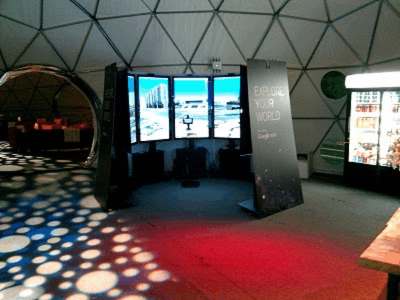| Liquid Galaxy goes open source - immersive Google Earth viewer |
| Friday, 01 October 2010 | |||
|
Liquid Galaxy is an immersive environment designed to let people experience Google Earth in a way that really takes them places. Now you too can build a Liquid Galaxy as the plans have just been made open source. Google introduced Liquid Galaxy at the end of last year and its has been doing the rounds of conferences and there is even one in the Tech Museum in San Jose, Calif
Even so they probably aren't going to become an everyday item. Which is a shame because if you view the video below then you are probably going to want to try one out. It looks like a really good way of relaxing at the end of a long day - and it might even have a few serious applications. It just looks stunning and the only reasonable reaction is - I want one...
If you do want one then you can build one - and it isn't that difficult. The necessary support for synchronised multiple views is present in the latest version of Google Earth and the rest of the details of how to create a Liquid Universe are now open source. The quick start page: http://code.google.com/p/liquid-galaxy/wiki/QuickStart really does make it look possible. You need just two Linux networked machines some special drivers and some LCD screens. The original used eight LCD screens arranged around a pod but you can start with just two LCD screens - the technology scales. You can also view more than Google Earth - the designers report being able to watch video. More information:Liquid Galaxy project at code.google.com.
|
|||
| Last Updated ( Friday, 01 October 2010 ) |

 .
.